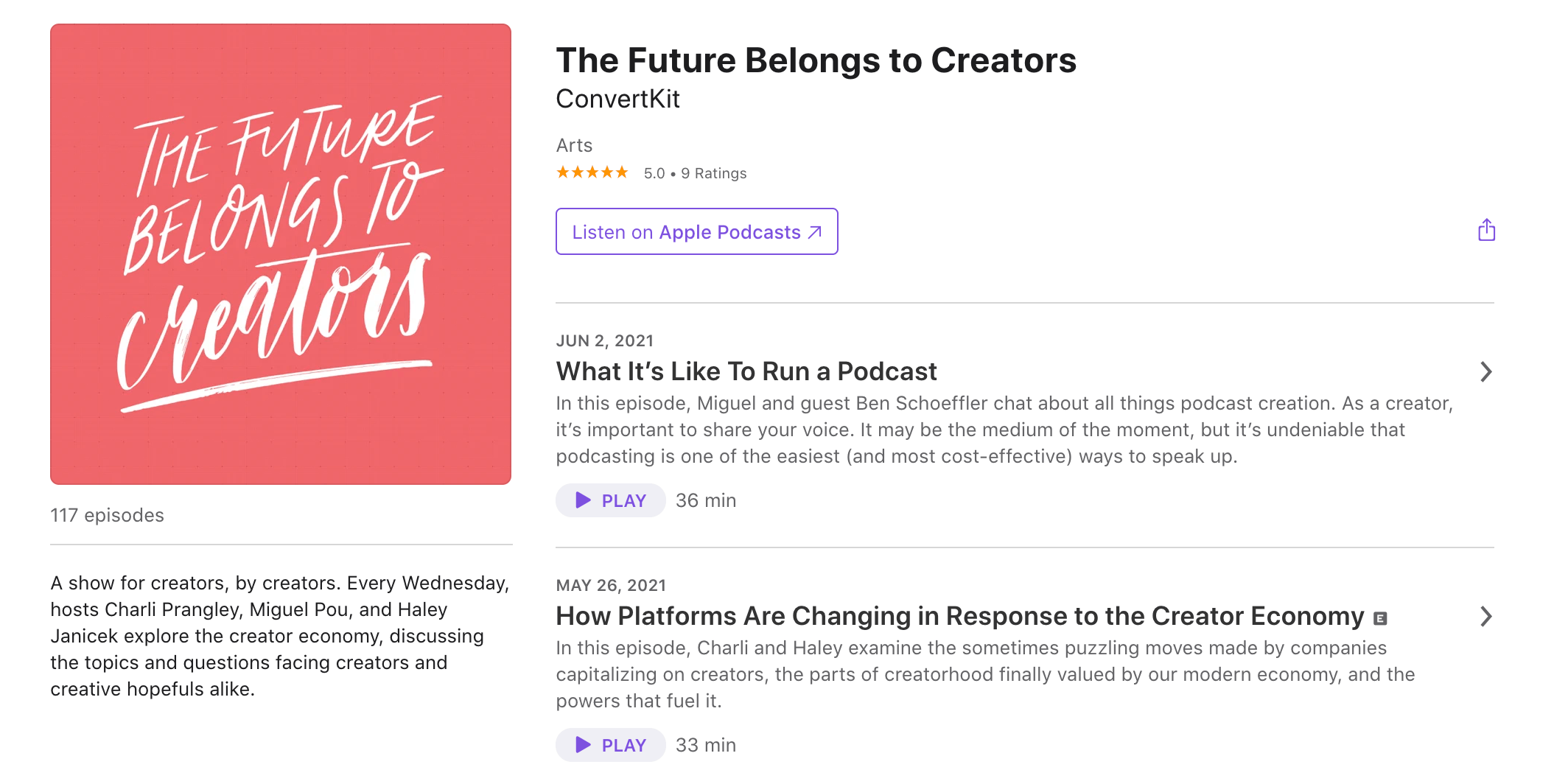The barrier to entry for content marketing is low, making it faster and more cost-effective than ever before for startups to implement this proven effective marketing strategy.
But here is the thing – the bar is higher than ever before.
A short blog post without multimedia is not going to do the trick anymore. The expectations of your prospects and customers are rising.
In many categories, we are seeing a winner-takes-all environment where high-quality content pieces win the vast majority of eyes—and clicks. In fact, a study by Ahrefs showed that 90.63% of all content gets zero traffic at all from Google.
How can your startup beat the odds?
In this column, you’ll learn about content marketing campaign planning, how to be memorable even on a small budget, and how startups can measure content marketing success.
Throughout, content marketers from successful startups share their tips and experience to help you achieve the best possible results. Let’s get started.
How to Plan Your Startup’s Content Marketing Campaigns
There are a million things that you could be doing: SEO, PR, Social Media… It can easily get overwhelming, expensive, and distracting.
When on a small budget, don’t start all channels at once or you might spread yourself too thin.
Try to balance long-term channels (SEO, social, podcasting) with campaigns that can get you the attention that you need right now.
Short-terms campaigns could be a promotion on Product Hunt, getting featured on Hacker News or TechCrunch, or speaking on the podcasts of industry leaders, for example.
This exposure allows you to understand the market, refine your messaging and create your first opportunities.
Whether you are planning a long-term campaign or a short-term initiative, the 4-point framework below will help to plan a content marketing strategy.
1. Objective
Before starting your campaign, you need to set your goals. This helps to align the team, communicate the purpose, and measure progress and success.
Your goals will be broken down into your objective and measurable targets.
Your objective is your reason why, or vision. The objective paints the bigger picture. Examples for marketing objectives include:
- Drive awareness with software founders through PR activities.
- Organize an event to build relevant industry relationships.
- Build out the blog to drive organic traffic with SEO.
2. Target
Your targets are measurable and quantify the objective. You might also have heard the term key results or KPIs before. A target should be so precise there is no doubt whether you have achieved it or not.
Examples for targets include:
- Publish 20 press pieces by end of Q3.
- Host 2 media dinners with key industry influencers by end of Q3.
- Publish 4 keyword-focused blog posts per month according to our content pillars.
3. Messaging
Your messaging conveys the value and benefit of your target audience. If you are planning an SEO or Social Media campaign the target audience is your potential prospects, leads, and customers.
Talk about the challenges they are facing and offer them unique, helpful solutions. Keep in mind that content marketing is educational, not strictly about the products your company sells.
If you are running a PR campaign, your target audience is really the journalist you are trying to work with. They are looking for an interesting new story to cover; their needs might be different from your prospective customers.
Ideally, your messaging will be highly relevant for the people in your target audience.
For each campaign, consider where they are in the nurturing funnel. What is meaningful for someone who has received 10 drip emails may not make sense for someone seeing your website for the first time.
4. Promotion
Holly Pels from Casted (founded in 2019) explains, “More brands need to slow the pace of content and focus on wringing out every piece to get the maximum value and return on investment and effort.
“Take, for example, a webinar. Marketers put a ton of work into creating these assets, driving registrations and hosting these events. Once the webinar happened, most brands slap them up on the website as “on-demand” assets and let them collect dust.
“Instead, take the different insights from the webinar and turn that into written content. Cut up small parts of the webinar and release snackable clips to drive people back to the content. Did attendees ask questions? Turn that into blog, social, or even audio and video content. If the webinar is conversational in nature, consider creating an audio series your audience can listen to on the run. The list goes on.
You don’t have to have a huge budget to have an effective (and great) content marketing strategy. Reusing, repurposing and repromoting content, especially the content that resonated with your audience, should be a practice every content marketer leans into.”
3 Factors to Improve Your Content Marketing Effectiveness
In a landscape where the barrier to entry is low but the bar is high, there are a few important things to consider if you want to win at content marketing with your startup:
- Focus: Pick a limited number of channels and learn to do them really well.
- Quality: It will take time to get proficient. Don’t overfocus on metrics in the first weeks/months; focus on producing quality.
- Consistency: Content marketing is a game of winning with the compound effect. Stick to your channel to see exponential returns over time.
Holly Pels says, “Because content can be such a driving force for so many areas of the business, too many brands have fallen into the trap of thinking that more content equals better results. The reality is that more content usually just means more content, more cost, and less efficiency.”
Good Content Marketing Makes You Memorable
Ian Luck, VP Marketing for CustomerGauge (founded in 2007) says, “Early-stage startups should focus on crafting their unique go-to-market message and then find like-minded people to buy into that message. Be unique and take a stance in the marketplace.”
The power of content marketing is to generate and capture demand. If your content reads like everyone else’s, you might get the click – but no one will remember you.
Your brand and your voice really matter. They turn an SEO or social click into a potential fan or lead.
Matthew Brew, Head of Marketing at EduMe (founded in 2016), rightfully said, “In-house content resources are crucial. Writing is very revealing – you can read someone’s level of interest in what they’re writing about. That’s why you need people all in on your mission to be true brand guardians, to really embody (or craft) your tone of voice.”
Good content marketing is first and foremost unique. Good content marketing makes it so that you are top of mind when a potential customer starts their buying cycle.
A famous example is the “open blog” by Buffer, where they share their entire startup journey including financials.
It was unique, took a stand, and continues to bring them attention, clicks, and customers.

A more recent example is that of the video series Wynter Games by the startup Wynter, which was founded in 2020.
Once a month, this live online event covers topics related to B2B marketing.

ConvertKit’s Creator Stories is another great example, this one a blog series that features artists, journalists, and musicians.
ConvertKit also started a new podcast in 2020 called The Future Belongs to Creators.
It is engaging, shareable, and connects Convert Kit to their target audience.


Measuring Success as a Startup: A Counter-Intuitive Approach
In the early days of a startup, content marketing is a powerful tool to test your offer and build first relationships.
Your goals should be about producing high-quality content and refining your messaging and offers.
Ellie Mirman from Mulberry (founded in 2018) says, “Remember that the measure of success for that early content may not be in terms of views, links or keyword rankings but rather focus on getting market validation for ideas/topics.
“Over time, you will learn the role different types of content play in your marketing mix – what’s needed for SEO, nurturing, PR, etc. – and then you can align your measures of success with each of those goals.”
Ian Luck adds, “The benefit startups have over larger established organizations is agility. Startups should focus on creating a community around their unique go-to-market and view of the marketplace – then bring 5x the content to market as your closest competition.”
After you get proficient at producing high-quality content, you can spend more time tracking the classic marketing metrics — search rankings, page views, conversions, revenue — in greater detail.
Content Marketing Ideas on a Small Budget
Matthew Brew recommends that startups get creative and says, “Nothing is off limits! From coming up with ways to stand out on social with your employer brand, to making influencers out of senior leaders by approaching them for content.”
Here are a few ideas for content marketing ideas on a budget that can lead to immediate results because they leverage platforms that already have an audience:
- Appearing on industry podcasts.
- Employer branding and employee advocacy.
- Speaking at conferences.
- Hosting or speaking at webinars.
- Brand partnerships and influencer campaigns.
- Creating a co-branded industry report.
- Joining an online community (Facebook or LinkedIn groups, Slack, Whatsapp).
- Doing a campaign on ProductHunt.
- Listing a deal on AppSumo.
- Producing LinkedIn or Medium articles.
- Running a targeted outreach campaign (LinkedIn or email).
Summary
Content marketing is a powerful tool for creating and capturing demand – that is, if you are exceptionally committed and don’t get distracted.
Instead of starting a ton of initiatives and channels at once, hone your focus. Pick some initiatives that will leverage existing audiences to get feedback and first leads for some quick wins.
Then, focus on the channels that your ideal customer profile loves. Get really good at one before dipping your toes in the next.
Find what works in your unique place in the market and do it again!
More Resources:
- The Difference Between Content Marketing & Content Strategy (& Why You Need Both)
- The 6 Elements of the Content Marketing Process
- Content Marketing: The Ultimate Beginner’s Guide
Image Credits
All screenshots taken by author, June 2021





